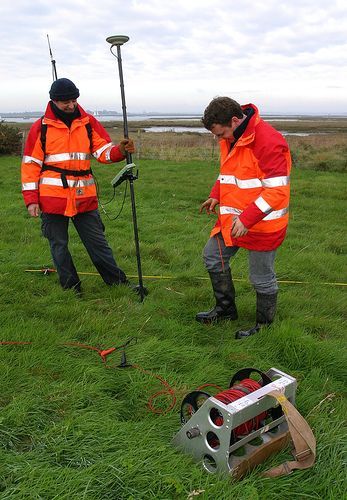Earlier this year I wrote about the Nature.com iPhone application that was released in February. Two weeks ago the app was updated with the following changes: * Access to abstracts from additional journals: Nature Genetics, Nature Medicine, Nature Biotechnology, Nature Reviews Microbiology, Nature Reviews Genetics, Nature Physics, and Nature Communications.
Front Matter

The ORCID initiative for unique researcher identifiers yesterday started a survey that everybody interested in ORCID should fill out. The survey asks questions about the main services that users expect from ORCID, and how the ORCID service should be paid for (e.g. membership fees or fee-for service). In quick response to the announcement of the survey on Twitter, an interesting discussion started on FriendFeed.

Registration for the ScienceOnline2011 conference starts today at 12 noon EST. This is the fifth annual conference on science and the web, and will be held January 13-15, 2011 in Research Triangle Park, North Carolina. This is the second time I will go to the conference – I had a wonderful time in 2009.
Practically all papers in high-energy physics (> 90% since the late 1990s) are first published on the ArXiv preprint server. Several related disciplines also have a long ArXiv tradition. But ArXiv is also an excellent source of interesting papers about scientific publishing, including this one from last Monday: Dallmeier-Tiessen S, Darby R, Goerner B, Hyppoelae J, Igo-Kemenes P, Kahn D, et al. First results of the SOAP project.
Cellular Therapy and Transplantation today published my paper Reference Management meets Web 2.0. Regular readers of this blog probably know about most of the things I talk about in the paper, but I hope it is a good introduction for those new to reference management.
The iPad was released six months ago, and we already have several reference managers available for the platform. Reading the PDF of a scientific paper on an iPad is a positive experience, and to me very different from reading the PDF on a regular computer. While this could also be done with generic iPad PDF readers such as iBooks or Goodreader, reference managers make it much easier to organize a large collection of PDF files.

PDF has become the standard way we consume scientific papers, but in fact is not a good format for this purpose at all. Or as Martin Robbins said at the recent Science Online London conference: PDF is an insult to science. The problem was nicely illustrated by Duncan Hull, using a quote from Peter Murray-Rust from a May 2008 article: There are of course ways journal publishers can add metadata to PDF files, e.g. using XMP markup.
In a blog post last week, Dario Taraborelli officially announced ReaderMeter. ReaderMeter takes the usage data from reference managers (starting with Mendeley) to analyze the impact of publications by a particular author. ReaderMeter is a welcome addition to other metrics of researcher impact, most of which are citation-based. And ReaderMeter was hacked together in a few nights, so the service should improve over time.
This week PLoS Computational Biology published another helpful editorial in their 10 Simple Rules collection (https://doi.org/10.1371/journal.pcbi.1000941): Ten Simple Rules for Editing Wikipedia. I have very rarely edited Wikipedia articles myself, and I suspect this behavior is the rule and not the exception among science bloggers.

Tables and figures contain the data of a scientific paper in condensed (and often visually appealing) form. This is why they are among the first thing we look at, and why they are often reused when we discuss the paper in a presentation or blog post.
Dear Christian Specht, Thank you very much for your detailed response in The Scientist to our previous letter regarding citation mutations.